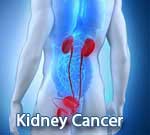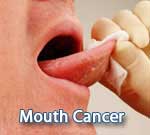Stomach Gastric Cancer
Introduction:
This page has important information about cancer* of the stomach. Stomach cancer is also called gastric cancer.
You will read about possible causes, symptoms, diagnosis, and treatment. You will also find ideas about how to cope with the disease.
Scientists are studying stomach cancer to find out more about its causes. And they are looking for better ways to treat it.
The Stomach
The stomach is part of the digestive system. It is a hollow organ in the upper abdomen, under the ribs.
The wall of the stomach has five layers:
- Inner layer or lining (mucosa): Juices made by glands in the inner layer help digest food. Most stomach cancers begin in this layer.
- Submucosa: This is the support tissue for the inner layer.
- Muscle layer: Muscles in this layer create a rippling motion that mixes and mashes food.
- Subserosa: This is the support tissue for the outer layer.
- Outer layer (serosa): The outer layer covers the stomach. It holds the stomach in place.
Food moves from the mouth through the esophagus to reach the stomach. In the stomach, the food becomes liquid. The liquid then moves into the small intestine, where it is digested even more.
Understanding Cancer
Cancer begins in cells, the building blocks that make up tissues. Tissues make up the organs of the body.
Normally, cells grow and divide to form new cells as the body needs them. When cells grow old, they die, and new cells take their place.
Sometimes, this orderly process goes wrong. New cells form when the body does not need them, and old cells do not die when they should. These extra cells can form a mass of tissue called a growth or tumor.
Tumors can be benign or malignant:
- Benign tumors are not cancer:
- Benign tumors are rarely life-threatening.
- Most benign tumors can be removed. They usually do not grow back.
- Cells from benign tumors do not invade the tissues around them.
- Cells from benign tumors do not spread to other parts of the body.
- Malignant tumors are cancer:
- Malignant tumors are generally more serious than benign tumors. They may be life- threatening.
- Malignant tumors often can be removed. But sometimes they grow back.
- Cells from malignant tumors can invade and damage nearby tissues and organs.
- Cells from malignant tumors can spread (metastasize) to other parts of the body. Cancer cells spread by breaking away from the original tumor and entering the bloodstream or the lymphatic system. The cells invade other organs and form new tumors that damage these organs. The spread of cancer is called metastasis.
Stomach cancer can affect nearby organs and lymph nodes:
- A stomach tumor can grow through the stomach's outer layer into nearby organs, such as the pancreas, esophagus, or intestine.
- Stomach cancer cells can spread through the blood to the liver, lungs, and other organs.
- Cancer cells also can spread through the lymphatic system to lymph nodes all over the body.
When cancer spreads from its original place to another part of the body, the new tumor has the same kind of abnormal cells and the same name as the original tumor. For example, if stomach cancer spreads to the liver, the cancer cells in the liver are actually stomach cancer cells. The disease is metastatic stomach cancer, not liver cancer. For that reason, it is treated as stomach cancer, not liver cancer. Doctors call the new tumor "distant" or metastatic disease.
Risk Factors
No one knows the exact causes of stomach cancer. Doctors often cannot explain why one person develops this disease and another does not.
Research has shown that people with certain risk factors are more likely than others to develop stomach cancer. A risk factor is something that may increase the chance of developing a disease.
Studies have found the following risk factors for stomach cancer:
- Age: Most people with this disease are 72 or older.
- Sex: Men are more likely than women to develop stomach cancer.
- Race: Stomach cancer is more common in Asian, Pacific Islander, Hispanic, and African Americans than in non-Hispanic white Americans.
- Diet: Studies suggest that people who eat a diet high in foods that are smoked, salted, or pickled may be at increased risk for stomach cancer. On the other hand, eating fresh fruits and vegetables may protect against this disease.
- Helicobacter pylori infection: H. pylori is a type of bacteria that commonly lives in the stomach. H. pylori infection increases the risk of stomach inflammation and stomach ulcers. It also increases the risk of stomach cancer, but only a small number of infected people develop stomach cancer.
Although infection increases the risk, cancer is not contagious. You cannot catch stomach cancer from another person who has it.
- Smoking: People who smoke are more likely to develop stomach cancer than people who do not smoke.
- Certain health problems: Conditions that cause inflammation or other problems in the stomach may increase the risk of stomach cancer:
- Stomach surgery
- Chronic gastritis (long-term inflammation of the stomach lining)
- Pernicious anemia (a blood disease that affects the stomach)
- Family history: A rare type of stomach cancer runs in some families.
Most people who have known risk factors do not develop stomach cancer. For example, many people have H. pylori in their stomach but never develop cancer. On the other hand, people who do develop the disease sometimes have no known risk factors.
If you think you may be at risk, you should talk with your doctor. Your doctor may be able to suggest ways to reduce your risk and can plan a schedule for checkups.
Symptoms
Early stomach cancer often does not cause clear symptoms. As the cancer grows, the most common symptoms are:
- Discomfort in the stomach area
- Feeling full or bloated after a small meal
- Nausea and vomiting
- Weight loss
Most often, these symptoms are not due to cancer. Other health problems, such as an ulcer or infection, can cause the same symptoms. Anyone with these symptoms should tell the doctor so that problems can be found and treated as early as possible.





































